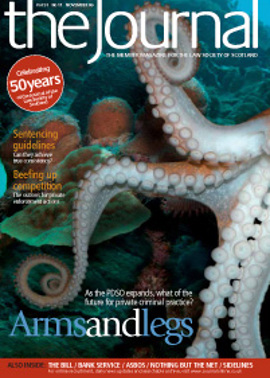The importance of kinship care

When parents cannot look after their children, what is the best alternative?
Youngsters suffering from or at risk of neglect or abuse are often placed in public care, but research and experience has consistently shown that local authorities make poor substitute parents. Looked-after young people have lower educational attainment, worse mental health, and are more likely to become homeless or offenders.
As a children’s charity, we strongly believe that the best care for children is that provided by their own family, and research shows that kinship care, where youngsters are looked after by members of their extended family when it is not possible or desirable for them to live with their parents, has many positive benefits.
Kinship care can reduce the trauma children experience from being placed with strangers, and can help to reinforce their identity and feelings of security. Youngsters in kinship care tend to keep in closer contact with siblings and are more likely to retain weekly contact with their birth mothers. Overall, research has shown that children who are looked after by relatives do better in virtually all respects than those who are looked after by strangers.
The benefits of kinship care are considerable and well known, but CHILDREN 1ST is concerned that the potential role of the extended family in caring for a child is not always fully explored.
Section 3 of the 1995 Children (Scotland) Act states that before making any decision with respect to a child they look after or propose to look after, a local authority should ascertain the views of the child, the parents and anyone else whose views they consider to be relevant. In Part 2 of the Act, s 22 also advises local authorities to “so far as is consistent with that duty, promote the upbringing of such children by their families”.
Despite this legal underpinning however, Scotland has a much lower rate of kinship care compared to stranger care than many other countries, and CHILDREN 1ST is concerned that children are often placed in public care before all the kinship-based options have been fully explored.
Greater kin involvement in the care of children would require a new way of working. In her recent report Looking after the family: a study of children looked after in kinship care in Scotland, published by the Social Work Inspection Agency, Professor Jane Aldgate recommends that family-led decision-making methods, including family group conferencing, should become a standard part of the decision-making process for kinship placements here in Scotland.
Family group conferencing is a tried and tested model which is already in use in more than half of all local authorities in England, throughout Wales and in 15 European countries, New Zealand and the USA. CHILDREN 1ST has pioneered the use of family group conferencing here in Scotland and it is now available in 15 local authority areas.
Family group conferencing brings together members of the support network of extended family and family friends to agree a suitable care plan for the child. Facilitated by an independent co-ordinator, family group conferences, which are child-centred, future-focused and blame-free, are the ideal environment in which to explore the full possibilities of kinship care. Child safety is always of paramount importance and all proposed care plans must be approved by the relevant child care professionals.
Often, a family member, who may or may not have been in contact with the parents, will offer to provide a home and full time care for the child, or family members may share the living and care arrangements. Where it is not possible for thechild to live with or to be in contact with the extended family, family group conferences can help the child to retain some sense of identity by arranging for information or photographs to be provided for them.
CHILDREN 1ST is determined that the rights of children and young people in Scotland be acknowledged on two counts: first, their right to a family group conference whenever a major decision is being made about their future; and secondly, their right to have all options of kinship care explored as a matter of course in any situation where parental care is not possible. Anything less risks exposing young people to the harm that can come from living in public care, not to mention the increased cost to the public purse. Embracing the natural concern of the wider family to care for a child by allowing them a real say in decision-making, we believe, brings lasting benefits to the child, their family and to society as a whole.In this issue
- Home and away
- The importance of kinship care
- Growing arms and legs
- Changing its spots?
- Guiding hand
- Trustbusters unite
- Closing the books
- Spam: the managed solution
- Nothing like Nothing but the Net!
- Banking on service
- You want certified?
- Enough is enough
- Provision and prejudice
- Work and families
- Cash trapped
- Man of business
- Scottish Solicitors' Discipline Tribunal
- Website reviews
- Book reviews
- Sale questionnaire to be tested
- So long, and thanks for all the fizz
- ASBO, the young misfit






